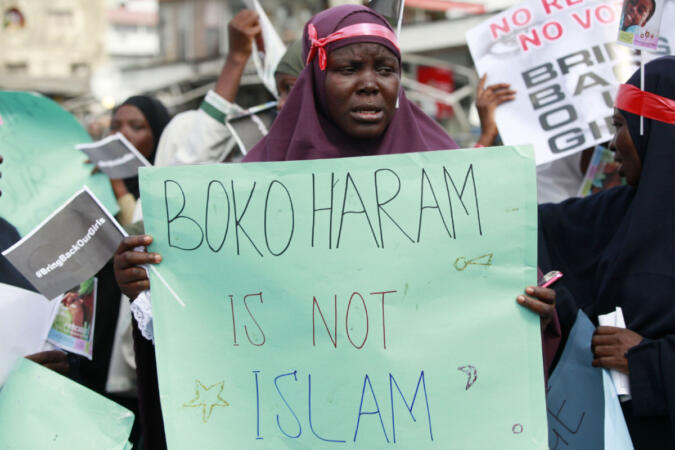
Al Jazeera English has revealed November 2016 programming highlights; skimming through it, I identified the below documentary titles that will be of interest to readers of this blog.
— “Latin America Investigates” is a described as ground-breaking new six-part documentary series that will allow some of the continent’s best independent journalists the opportunity to pursue high-level investigative targets in their own backyard – using their unique perspective and local knowledge to put various issues of significance to them under the spotlight.
All too often in the past, Latin American journalists have not been able to pursue wrongdoing because it involves powerful figures who wield undue influence over local media – financial, corporate or political – or because it is simply too dangerous. Investigative journalism is a perilous profession in many Latin American countries where intimidation, threats, beatings, false imprisonment and murder can be an occupational hazard.
As a result its journalists have often had to sit idly by while crucial stories are either ignored or framed by outsiders in simplistic and stereotypical terms. Now, working undercover and using hidden cameras, “Latin America Investigates” is enabling reporters (many of whom are new to television) to expose everything from extra judicial killings to elaborate frauds, the abuse of minorities and children and high level corruption.
The series starts on Wednesday November 23
— “In the Shadow of the Hill,” airing November 30th, with repeat broadcasts set for December 1, 2 and 3.
In November 2011, military police took control of Rio de Janeiro’s largest favela, Rocinha, forcing out armed gangs of drug traffickers without a single shot fired, in a government initiative to ‘pacify’ the slums. However shortly afterwards reports began to emerge of widespread police abuse, which culminated in the disappearance of local bricklayer, Amarildo de Souza.
He was last seen being taken into the police station for questioning but never came home. His family believed that he had been tortured and murdered by the police, with impunity, like many other innocent civilians in the city. In the face of brutal oppression, local residents started a protest movement, ‘Where is Amarildo?’ that shook the Brazilian establishment to the core.
— “Thank You, Football” tells the stories of four African and Arab footballers all of whose lives have been transformed by playing for some of the best known clubs in the world. This two-part series looks at Yaya Touré, Yacine Brahimi, Youssef El-Arabi and Ali Al Habsi through the eyes of their families, friends, coaches, journalists, agents and fans.
Episode One (airing on the 15th of November) features the Côte d’Ivoire and Manchester City midfielder Yaya Touré and Algerian striker Yacine Brahimi, now playing for FC Porto. Touré was part of the Barcelona side that won six trophies in 2009. He scored for Manchester City in the 2011 FA Cup Final and helped them to their first league title in 44 years. Now a UN Goodwill Ambassador, he was described as a “leader for so many young people, in terms of their visions, their dreams…” Brahimi starred for Algeria at the 2014 World Cup, helping them to reach the last 16. “I was in the amateur championship of France and just played a match with Rennes”, he says. “The following week I found myself at the Nou Camp playing against Barcelona. That was just amazing.”
Episode Two (airing on the 22nd of November) features the French-born Moroccan, Youssef El-Arabi, who now plays for Lekhwiya in the Qatar Stars League; and the Omani goalkeeper, Ali Al Habsi. El Arabi’s coach in Spain described him as “already a part of the history of Granada and the club’s history”. Al-Habsi once worked as a fireman at Muscat airport but as goalkeeper at Bolton Wanderers and Wigan Athletic has become one of the best-loved Arab players in the UK.
— “Hissène Habré: Trial of a Dictator,” premieres November 3.
The conviction of Hissène Habré, former president of Chad, for crimes against humanity was the culmination of a 17 year-long campaign for justice. It may not have happened without the perseverance of a small group of lawyers – including ‘Dictator Hunter’ Reed Brody – who made it their mission to see Habré stand trial. This film follows their campaign and investigates what turned Hissène Habré into such a bloodthirsty dictator.
Habré initially received support from France and the US after seizing power in 1982. However, he set up the notorious DDS, a secret police force, which hunted down and murdered political opponents. It’s estimated that 40,000 people were killed and 200,000 tortured in his eight year rule. Following the collapse of his regime, he escaped to Senegal with $11 million, where, decades later, he was convicted by a special tribunal.
— “Boko Haram,” premiering on November 10.
On April 14th 2014, over 250 school girls were abducted by the Boko Haram group in Chibok, northern Nigeria. This heralded the birth, in international media at least, of a group which had been in existence for over ten years in the region. In March 2015, its leader, Abubakar Shekau, proclaimed his allegiance to ISIL.
Director, Zavier Muntz, has undertaken an investigation in Northern Nigeria where the group came into being in 2002, to try to uncover the reasons behind its extreme violence. Hundreds of abductions, tens of thousands of killings, dozens of suicide bombings, hundreds of razed villages, not only in northern Nigeria, but also in Cameroon, Chad and Niger. Nigeria now in coalition with its neighbors, is still struggling to contain Boko Haram, an organisation that continues to thrive.
Al Jazeera English broadcast to more than 220 million households in more than 100 countries, available through satellite and cable providers around the world. To find out whether it’s available near you, visit their channel finder page here: http://sat.aljazeera.net/en

